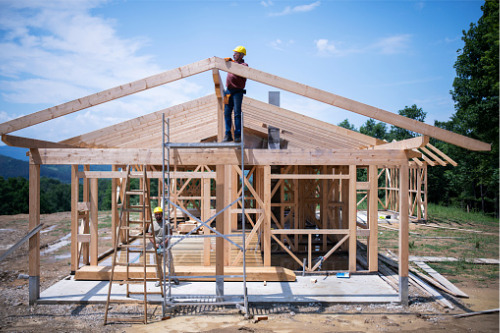

Dealing with property insurance claims is traditionally quite laborious and clients with smaller damage have been looking for an easier way to deal with the claims and repair process.
At this year’s Insurtech Connect conference in Las Vegas, Insurance Business sat down with Christie Downs and Kathryn Wood, co-founders of Handdii, to discuss their uniquely designed product that connects insurance companies, contractors and clients so small property claims can be handled in an efficient manner.
Downs, who is also the CEO of Handdii, has 10 years of experience as a director in a construction company, specialising in insurance repair and Wood, COO of Handdii, was head of claims at QBE for several years. The two saw the gap when it came to handling small property claims and created a technological platform that has made contractors a part of the claim’s conversation.
Handdii’s innovative digital platform connects the insurance industry directly with contractors to allow for small claims to be handled with ease. Downs explained that the platform links insurers and their customers straight to a network of pre-qualified, vetted contractors so when there’s a claim, a customer is connected to a contractor, the property is inspected, and the customer can decide whether to use the contractor or not.
“When the contractor carries out the work, everything is visible and fully transparent for the homeowner, and there’s constant communication between the adjustor and contractor so the customer is always informed,” said Downs.
Contractors are a vital component of claims delivery, and platforms such as Handdii provide a cohesive platform for contractors to be a part of the claim lifecycle.
“This has resulted in reduced inbound calls to the insurance company,” Downs mentioned. “With one of our clients, the calls per claim have reduced from 4.8 calls to 1.2 because the customer knows what’s going on as the status of a claim is being easily communicated.”
Wood added: “From a claims perspective there’s always three things to take into account; how do I keep my customer happy, how do I control cost and how do I make sure the claim is dealt with quickly.”
Handdii is enabling and enhancing transparency for small property claims with technology that allows the customer to have authority on what contractor works on their home, provides the insurance company with easy access to estimates and inspections, and enables contractors to show adjustors real-time steps throughout the inspection process.
On top of that, Handdii has a video tool so all three parties can chat with each other which Downs said was extremely beneficial during the pandemic.
“We built Handdii in a way to remove some of the friction points that exist in the insurance process while still collecting and maintaining the right levels of data to give the insurance company the confidence that everything is being managed successfully,” Wood noted.
“The property process is really cumbersome because it’s being designed for complex claims,” Downs mentioned. “In the small claims environment, we’ve streamlined that process for the customer.”
Another interesting addition to Handdii’s platform is its star rating system where customers can rate repairs as they are being done. Having that early indication of when a customer is unsatisfied allows contractors to deal with the issue straight away before it becomes a bigger issue.
“When we’re looking at contractor performance data, or repair performance data, for the insurance company it’s about understanding peril types, severity, frequency of claims, how they’re being repaired, and what’s the average cost on those repairs,” said Wood.
“If you understand throughout the journey of a repair of how the customer is feeling about their experience, you’re more likely to understand where problems would be, where you’d need to interject, or if everything is going smoothly so it’s wrapped up in the forecasted timeframe,” Wood emphasized.
“The real time feedback of information on customer satisfaction becomes critical for the insurance company as claims is the most important time for an insurance company to deliver on their promise,” said Wood.
Down added: “Insurance companies want to add value to their customer experience, and we help them ensure that the repair experience meets customers’ needs.”
